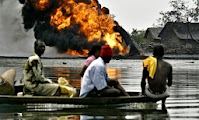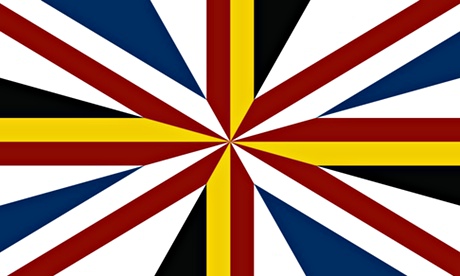Until I moved to Pakistan for a few years after
graduating from college in California, I wouldn’t say that I
saw my Indian or Indian diaspora friends as anything other than fellow South
Asians – brown brothers and sisters who had similar tastes and values, but who
supported the wrong cricket team and prayed in a different way.
In Pakistan, I inquired and discovered what caste
my Hindu ancestors belonged to, having been asked by a colleague on my first
day at work (at a women’s rights NGO!)
In Pakistan, I learned the South Asian prejudices
that South Asian beauty was predicated on a light skin-tone and, for men, sharp
features and height. I learnt too that these features were associated with
higher caste Indians and with Muslims – descendants of invaders were regarded
as more beautiful than the indigenous people who had constructed the Indus’
most ancient civilisations. Why, then, the likes of Shiv Sena only target
Muslims in India as foreigners (many of whose ancestors were Hindu), seems a
bit arbitrary. It was in Pakistan that I learnt how, in spite of inhabiting an
Islamic republic, Pakistanis carried forth their un-Islamic caste prejudices,
and that these prejudices allowed many of us to feel superior. By learning how
somewhat physically different we were from many Indians, I also learnt how
similar our mentalities were to my image of them.
For all the prejudices I ridiculed, I started
subconsciously imbibing them, and my recent friendships with Indians and Hindus
have been coloured by them. Where I previously had yearned for dark and lovely
South Asian girls, I started favouring the light-skinned ones, and I’ve enjoyed
teasing Brahmin girls I’ve dated that they had lost their caste. (Apparently
for fear of losing hers, one of my ancestors refused to share the crockery her
son had used, let alone hug him, once he had converted to Islam.) I now guess
(to myself) a person’s caste by considering their surname and looks, and try to
figure out whether their life choices (profession, partner, extra-curricular
activities) have been affected by it.
Hussein (name changed to protect privacy) was the
first Indian friend I had made since I had started living in Pakistan. We
connected through blogging while I was in Lahore and he was in Mumbai.
We were initially drawn to each other by a
fascination with each other’s otherness. He wanted to know what Pakistan was
like, his thirst having been whet by a book called Husband of a Fanatic about
my (and Amitava Kumar’s) relatives in Pakistan, and about Hindu extremism in
India. I had never known a Muslim Indian, and wanted to know whether he felt
marginalised, what his daily struggles were and which cricket team he
supported. (I myself failed Norman Tebbit’s test of being a true Brit for
failing to support England.)
When we finally became friends in the UK, he shared
with me Tehelka’s coverage of the 2002 Gujarat riots, and then details of his
own tragic loss in those riots.
Despite seeing an indecent proportion of his
compatriots support the man responsible for inciting those riots, he tells me
that he is glad that his grandparents didn’t cross the border – I understand
his view: whereas in India, you aren’t safe being a Muslim, in Pakistan you
aren’t safe being the wrong type of Muslim. Pakistan and India aren’t too
dissimilar.
About the author: Imaduddin Ahmed is a Pakistani
and British Public Private Partnerships financial transactions advisor in
Rwanda. He has blogged as ‘The Lost Pakistani’ for GQ India and co-authored
with Kapil Komireddi ‘Pakistan, rebranded’ for The Boston Globe, as well as
opinion editorials and comment pieces for the global edition of The New York
Times, Internationale Politik, The Guardian, The East African, The Friday Times
of Pakistan and New Strait Times.
Photo credit: Asim Rafiqui

